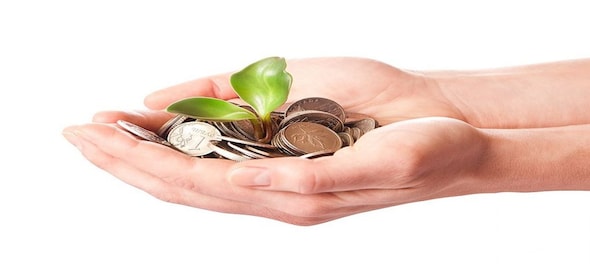
Even if you spend hours brainstorming ways to make more money, you may not pay much consideration to how you relate to money.
Live TV
Loading...
You must explore yourself to understand your relationship with money. You may utilise self-reflection to discover the meaning of money in your life. This will help you in identifying your money management ideals, attitudes, and behaviours. To do so, you must answer some questions truthfully.
Be Aware Of Your Net Worth
Your net worth consists of what's left of your money after subtracting your debts and liabilities from your total assets. Your assets could come from many sources, including earnings, business income, gifts, and inheritance.
So you're sitting down to calculate your net worth for the first time and you realise. you're in debt. And not just a little debt, but DEEP debt. The kind of debt that has been weighing you down without you even realising it. But don't worry, there are plenty of options for getting out of debt and getting your finances back on track. Alternatively, you may discover that you are in a position to be financially independent now.
You need to take into account all of your assets (what you own) and your liabilities (what you owe). This can be a daunting task, but it's worth it to get an accurate picture of your financial situation.
When it comes to liquid assets, cash is king. But, all of your other options like stocks, mutual funds, and bonds are still important. Make sure to consider all of those at their current market value.
When it comes to listing your fixed assets, don't forget to include your house, car, jewellery, art, and any other possessions that could be considered valuable. To find the market value of these items, just take a look around online to see what similar items are selling for. You might be surprised at how much your stuff is actually worth!
Finally, you need to deduct all of your liabilities. This will include things like bank loans, loans from relatives or friends, credit card debts, student loans, and unpaid bills. In other words, anything that you owe money on. Once you've deducted all of your liabilities, you'll have a better idea of your net worth.
Be Aware Of How You Spend Your Money
Your relationship with money is a lot like your relationship with food. If you want to be aware of what you're consuming, you have to be aware of every mouthful going in and every scrap coming out. The same is true of your finances - if you want to get a handle on your money behaviour, you have to be aware of each and every rupee coming in and going out.
There's no one way to keep track of your finances. Some people like to use a pocket-size diary, others prefer expense monitoring mobile apps. Some people spend everything through credit cards or wallets or debit cards and everything is automatically recorded, which they can access at the end of the month. The important thing is to find a system that works for you and stick to it.
Have A Budget And Follow It
After tracking your spending for a few months, you might be surprised to find out how much you're actually spending on things you don't really need. Now is the time to create a budget and be more mindful about your spending habits, so that you can save up for your financial goals.
Use the simple 50-30-20 formula to figure out how much of your money to spend and save. 50 percent of your income goes to your needs 30 percent of your income goes to fun 20 percent of your income goes to your savings.
A budget is like a map for your money. It tells you where all of your funds are supposed to go so that you don't accidentally spend your rent money on a new outfit or your utilities money on a shopping spree. Having a budget helps you to control your spending so that everything is covered every month.
Keep Track Of Your Finances
Money dates can assist you with this. You need a weekly "Money Date" just like you need a weekly date night with your mate to keep the romance alive. A Money Date is a pre-planned meeting with your finances to review important financial goals. This is the time to evaluate your savings, expenditures, and, most importantly, investing.
Developing Personal Financial Literacy
Just like anything else, financial literacy takes time and effort to understand. So set aside an hour each week to study up on topics like taxation, goal-planning, investing and portfolio management. You can think of it as your very own FinLit Hour.
Conclusion
Creating financial awareness is like creating a solid foundation for your dream of financial independence. Just as a house needs a strong foundation to support it, your dream needs a strong foundation of financial knowledge to support it. By increasing your financial awareness, you can lay the groundwork for a bright future.
The author, Vineet Patawari, is co-founder and CEO at ELEARNMARKETS and StockEdge. Thed views expressed are personal
Check out our in-depth Market Coverage, Business News & get real-time Stock Market Updates on CNBC-TV18. Also, Watch our channels CNBC-TV18, CNBC Awaaz and CNBC Bajar Live on-the-go!


2024 Lok Sabha Elections | Why Kerala is in focus as the second phase begins to vote
Apr 26, 2024 9:33 AM
Bengaluru Rural Lok Sabha election: Over 8% voter turnout recorded by 9 am
Apr 26, 2024 9:11 AM

